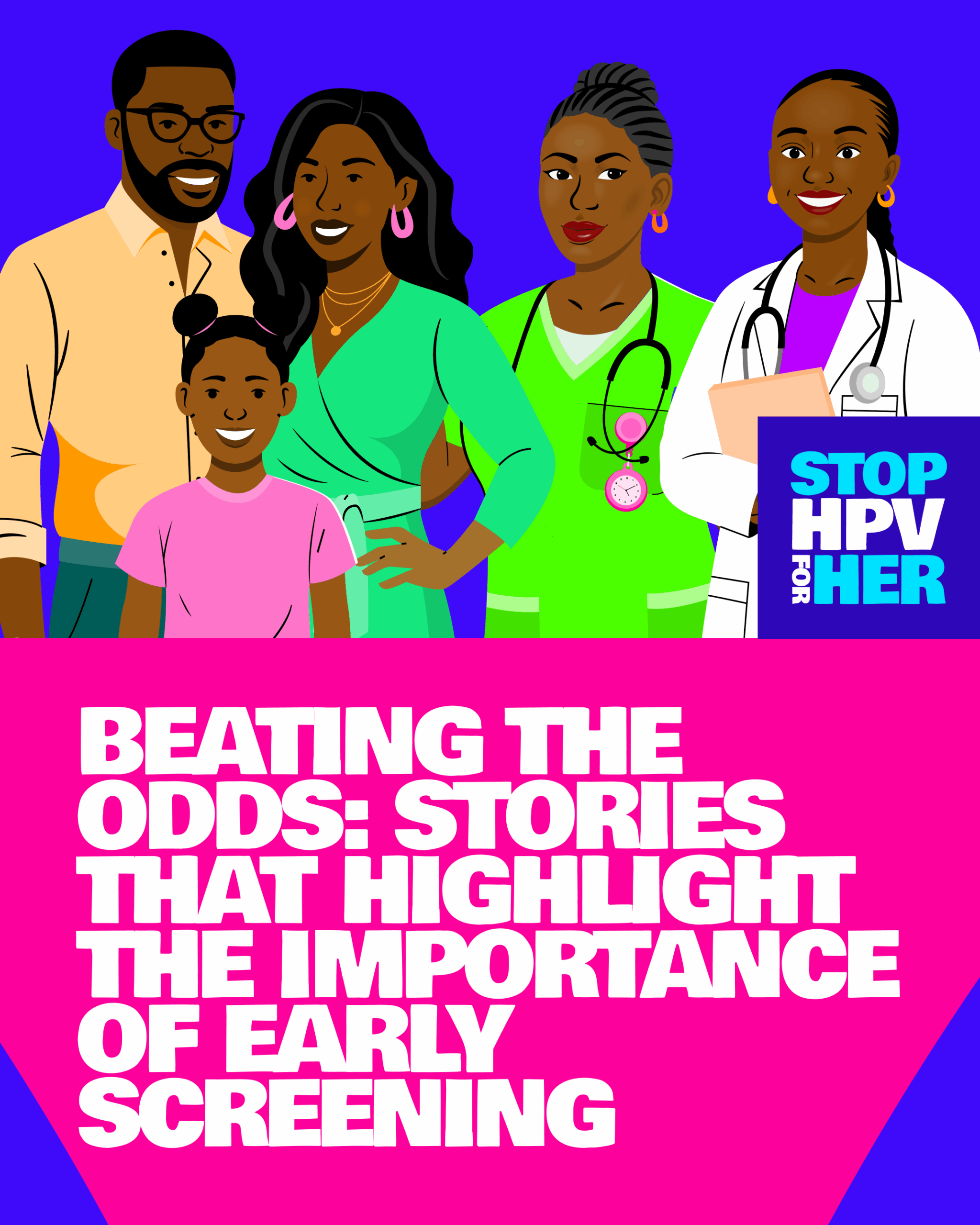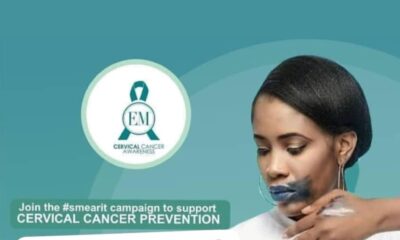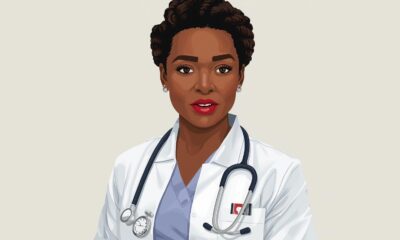Health
Beating the Odds: Stories That Highlight the Importance of Early Screening and the Vaccine
When, in October, BellaNaija decided to launch the #StopHPVForHer campaign, the goal was simple but urgent: to draw attention to Human Papillomavirus (HPV) and its connection to cervical cancer, and to close the widening gap between information and action.

What do women have in common? You could name a few off the top of your head. Empathy. The ability to multitask. The superhuman strength to keep going even when exhaustion sets in. But beyond that resilience and grace lies something far more sobering — an invisible thread that binds too many women together: cancer. Breast, lung, ovarian, and endometrial are often spoken about. The one that rarely is, yet affects millions, is cervical cancer.
When Kami, 29, a mother of one, began to notice some unusual changes in her body in 2022, she didn’t think much of it at first. It started with bleeding after sex, then heavier flow even when it wasn’t time for her period. Soon after came the pelvic pains. That was when she knew she’d had enough and decided to go to the hospital.
There, she received news that stopped her in her tracks: doctors had found abnormal cells in her pelvis and confirmed she had tested positive for HPV, the virus that could lead to cervical cancer.
“I didn’t even know what HPV was,” she said. “I had never heard of it before. That was what scared me the most.”
In one study of 179 women aged 16 to 45, researchers found that while awareness of cervical cancer has increased, knowledge of HPV remains alarmingly low.
Like Kami, many Nigerian women know what cervical cancer is but not what causes it. HPV — the Human Papillomavirus — is so common that eight in ten sexually active people will contract it at some point. It spreads through intimate skin-to-skin contact, not necessarily intercourse, and most people never know they’ve had it. For many, the virus clears up naturally. But when high-risk strains like HPV 16 and 18 linger, they can quietly change cervical cells over time, eventually turning them cancerous. These two strains alone cause about 70% of cervical cancer cases worldwide.
In Nigeria, cervical cancer is the second most common cancer among women, with about 12,000 new cases each year. Yet it is one of the most preventable, if caught early. The tragedy is that most women don’t get screened until symptoms appear, and by then, the disease has often advanced.
Throughout October, BellaNaija’s #StopHPVForHer campaign has sought to change that — breaking the silence, encouraging early screening, and promoting vaccination. It’s about knowledge, access, and protection: knowing how HPV spreads, ensuring women can get screened, and advocating vaccination for girls aged 9 to 14, when protection is strongest.
For Lola, a mother of three in Abuja, screening wasn’t a choice, it was policy. Her hospital required a Pap smear after childbirth. She had done it twice before, but after her third delivery, her results came back positive for HPV.
“My heart almost stopped,” she said. “I was still breastfeeding, recovering, and suddenly I had this new fear.”
Her doctor reassured her that HPV often clears on its own, but she would need regular follow-ups. The anxiety lingered. “Sometimes I regret even doing that test,” she admitted. “It feels like living with something I can’t fix.”
But knowledge is its own protection. Without that test, Lola wouldn’t know to monitor her health or that her immune system could fight the virus. Screening doesn’t cause fear. It replaces uncertainty with understanding.
Peace, 27, learned she had HPV during a routine check in the UK. Her reaction was calm — a friend had gone through the same thing.
“I told all my friends so they’d get tested too,” she said. “When women talk about it, it doesn’t feel like shame anymore.”
A year later, Peace’s body cleared the virus naturally.
Bisola, 33, only got screened because a friend insisted.
“When the doctor said I had HPV and abnormal cells, I froze,” she recalled. “All I heard was cancer.” Her results caught early changes, and she was treated before anything advanced. “Now I’m the one reminding my friends to go,” she said.
But not all stories begin with choice. Sarah, 42, discovered her HPV status after 17 years in what she called a “one-sided marriage.” Her husband had been unfaithful.
“I screamed when I got my results,” she said. “It felt like my body betrayed me for someone else’s choices.”
The test revealed high-risk HPV but no cancer. Still, the emotional toll was heavy. “Men can carry it without symptoms or tests,” she said, “so how do we protect ourselves?” She has since left the marriage. “We must protect our bodies,” she added. “That’s our power.”
Then there’s Aisha, 49, who took a Pap smear at a workplace health fair, mostly because it was free.
“I didn’t feel sick,” she said. “But when they said I had HPV and abnormal cells, I was shocked.” Early treatment removed the affected tissue, and she was later cleared. “That experience changed everything. I realised how easily we neglect our bodies.”
Kami, Lola, Peace, Bisola, Sarah, and Aisha live different lives, yet their stories meet at one point — they acted early. They went for screening, some by decision, others by chance, and that step changed everything. It gave them time and hope.
Cervical cancer is preventable. The HPV vaccine – now available across Nigeria as part of the routine immunization and free for 9-year-old girls – guards against the strains responsible for most cases. A single dose can provide up to 98% protection. Screening, like Pap smears, remains just as vital for sexually active women, with checks recommended every three to five years from age 25.
Early detection makes all the difference. Procedures like LEEP, which remove abnormal tissue before it turns cancerous, are simple, effective, and lifesaving.
Inside BellaNaija’s HPV Campaign
When, in October, BellaNaija decided to launch the #StopHPVForHer campaign, the goal was simple but urgent: to draw attention to Human Papillomavirus (HPV) and its connection to cervical cancer, and to close the widening gap between information and action. No one quite knew how far the message would travel, or how many women it would reach. But what followed was a wave of awareness that rippled through communities, screens, and conversations across the country.
For many, HPV was a distant term, one that barely registered outside the walls of hospitals or science classrooms. The campaign helped bridge that gap. Through online conversations, digital explainers, radio and television interviews, and everyday conversations, it created a space where women could learn, ask questions, and understand what HPV really means and why its link to cervical cancer, one of the most preventable forms of cancer, is something every woman should know.
BellaNaija’s goal was simple: to make accurate, trusted information about HPV, cervical cancer, and prevention accessible to everyone.
Reaching Women Where They Are
The campaign unfolded in collaboration with medical experts, public health advocates, government and non-government organisations who helped unpack the science behind HPV and cervical cancer in simple, direct language. BellaNaija also published medically reviewed explainers that broke down the science of HPV, personal essays that reflected the lived realities of Nigerian women, and educational content that guided readers on how and where to get screened or vaccinated. Each story, whether from a doctor or a survivor, was an invitation to know more, ask questions, and act early.
It also highlighted one of the most significant milestones in Nigeria’s health system — the nationwide rollout of the HPV vaccine for girls aged nine and above.
What the campaign achieved cannot be measured only in clicks or views. It’s in the messages from readers who said they learned something new, in the mothers who asked about the vaccine for their daughters, and in the growing awareness that prevention is possible and within reach.
As October comes to a close, the goal remains the same: to ensure every woman, regardless of background or location, knows that early action can make all the difference.
HPV-related cancers do not have to claim more lives. The tools are here. The science leaves no doubt. The vaccine works. What matters now is ensuring that information reaches everyone, that screening becomes routine, and that no woman has to suffer for lack of knowledge or access.
***
All names are pseudonyms.























